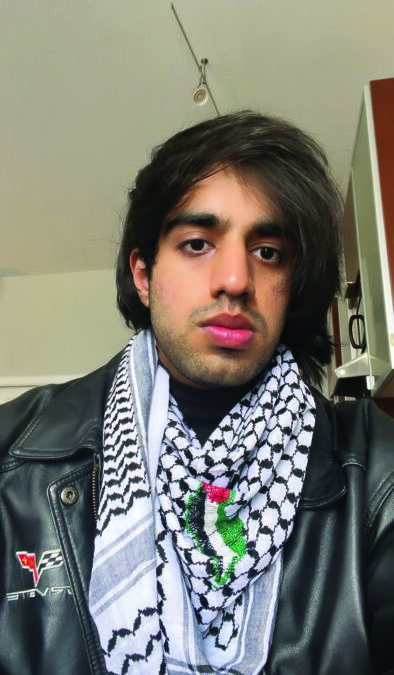Ali Imran, Staff Writer–
Hearing the words justice and movement felt like a gut punch. I looked at the other faces in the room in search of some shared feeling of doom or outrage. But the audience at the MLK brunch was busy listening to someone with a million dollar salary praising the revolutionary potential of the diversity potluck.
The same time, a week earlier, I had been in a mandatory meeting being censured and told that there is a “time, place, and manner” for the most desperate and profound truths in my life. In making diversity yummy, we are given a “happy” framework to understand why we need it in the first place and much is obfuscated. As many have said, we need to ask more trenchant questions about these proliferating institutional rhetorics of diversity.
Colonialism and its violence completely receded from our minds at the MLK brunch. We need reminders when violence recedes from view. It is neither “fun” nor “exciting” for those battered and outraged by racial distortions, silence, and betrayal in being at the table built on their backs. Importantly, as Sirma Bilge writes, if a few of us are at that table now, we are also on the menu.
The limits of institutional “tolerance” for those embodying “diversity” expose many contradictions and lies. If you voice a call for liberation – a call that actually threatens power, not one that shores up those in power but threatens their power over altogether – then you must be dealt with swiftly and with their most blunt tools. They conjure powerful fantasies animating the West’s colonial project, translating any rebellion from those kept under control and any challenge to privileges granted by systems grinding the bones of those wretched of the earth as a threat to their very sense of existence.
It is not surprising that implicit in much diversity rhetoric is the call to join their encampment, you have been so generously given a seat at their table! If you do not conform then not “on our public square.” They will sacrifice millions of black and brown people at the altar of their colonial fantasies. You will be condemned for pointing out what their wars are actually about.
I left the last MLK day event to complete my reading for the next day. It was bell hooks and I scribbled her words in my notebook, “as long as … any group defines liberation as gaining social equality with ruling class white men, they have a vested interest in the continued exploitation and oppression of others.” There was something early theorists of discrimination knew that is lost on most people today: discrimination is not a matter of differential treatment but treatment that reproduces inequality. Alongside powers that be, the silent treatment by those who teach is neither ethical nor pedagogical, it is also deeply unfair (in a recent survey, 81% of professors who teach about the Middle East are self-censoring when it comes criticizing Israel).
I have been taught Edward Said, Audre Lorde, and bell hooks in more classes than I can remember. It should be an insult to those claiming an education that we live like we don’t know any better. Somehow, we can’t hear the soul crushing cries of millions and pretend to not see the emigres and outcasts in our streets, hallways, and syllabuses. The scholasticide in Gaza and attacks on Palestinian students on U.S. college campuses are taboo subjects (even saying Palestine is triggering to some).
To anyone reading them or teaching them, your silence and inaction materially reproduces the social subjugation of those Palestinian revolutionaries, black feminist radicals, immigrant poets, and their most disadvantaged students. I will leave you with words from Dr. Sarah Ihmoud’s Palestinian litany for survival: “we must continue to enact refusal, shaking free of ghassa/ غصة, that lump in our throat when the grief is thick and suffocating, to boldly disrupt the noise of complacency.”

